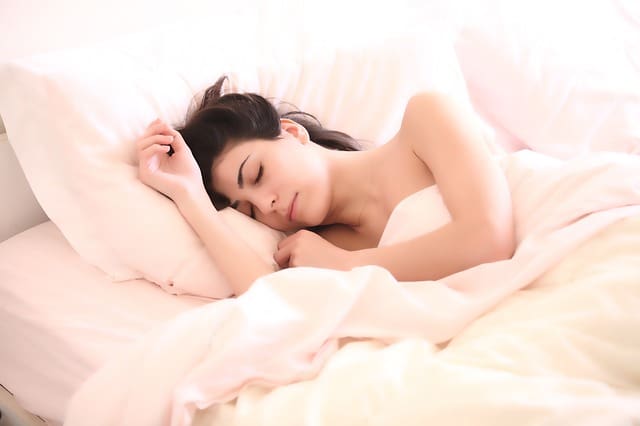It is a little discussed fact in today’s fast-paced, do it all world, but lack of sleep can make us put on weight. When we feel tired during the day, we normally have something we need to do, so we will turn to caffeine and sugar to keep us powered through our day of work, studies, or chores.
Of course, this boost will wear off quickly, resulting in us crashing and needing more caffeine or sugar to get us through the day. We’re then too weak and tired to do well with our exercises, but too buzzed to rest or sleep properly at night. The cycle keeps on going and we start suffering from sleep deprivation.
Sleep deprivation builds up as something we call sleep debt. Sleep debt means that the first night you have less sleep, you don’t feel too bad. The second night it gets worse. And the third night it gets worse again. And from then onwards, every night of bad sleep or restricted sleep results in even more damage to the fast growing parts of our brains. So after a few weeks you may feel as though you haven’t slept in days, even though you’ve had the same amount of sleep you had a week ago.
When you are sleep deprived three things happen which conspire against your weight loss efforts: you eat more, you exercise less, and your metabolism crashes.
You eat more because running on limited sleep is very demanding in terms of energy. We start relying on a continual stream of quick fixes to keep us awake and focused. Caffeine and sugar are important go-tos, but people can have just as much trouble with any conventional comfort food, or even some strange foods. Whatever your craving, you are guaranteed to eat too much of it.
You exercise less because you are tired. You don’t have the motivation or the alertness to go and work out. But even if you push through and hit the gym anyway, there will not be enough glucose or ketones in your blood to power you, and you will feel weak and tired as you work out. What is more, forcing yourself to exercise when you are tired makes you more likely to get injured, which will stop you exercising for even longer.
Finally, your metabolism will crash because your hormones are regulated by your sleep cycle. Ghrelin is the hormone that makes us feel hungry, and leptin is the hormone that tells us we have had enough food. But leptin is made mostly as we sleep, and ghrelin is made whenever we are struggling for quick energy. So when we are sleep deprived we have too little of our fullness hormone and too much of our hunger hormone.
Thankfully, the solution is as obvious as you would think: Just get more sleep. It may be as simple as getting an early night, or putting down that book, in many people’s cases. But others among us suffer mild insomnia. For this, you first need to rule out that it is anything you are doing.
Just don’t eat it immediately before bed. Ideally you want to stop eating an hour before going to bed, and to avoid sugary foods, junk foods, and alcohol three hours before going to bed, as these things can increase your risk of night sweats, a need to urinate, or heartburn, all of which interfere with sleep.
If you have corrected all this and you still have a hard time falling asleep, or if you are sleeping fine, but waking up feeling tired, then you need to see your doctor. You may be suffering one of many forms of insomnia, and it could be that you need help with your condition.



